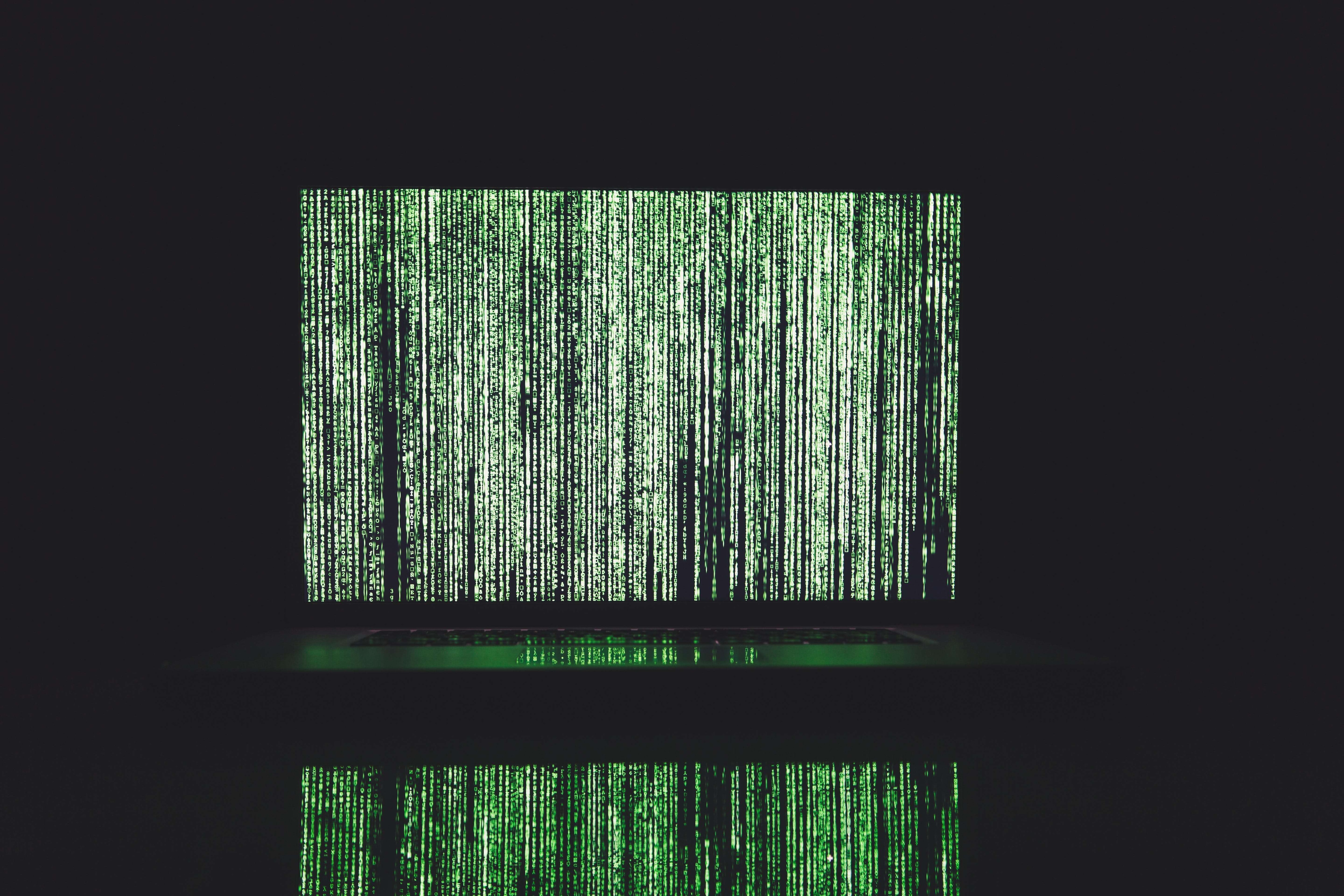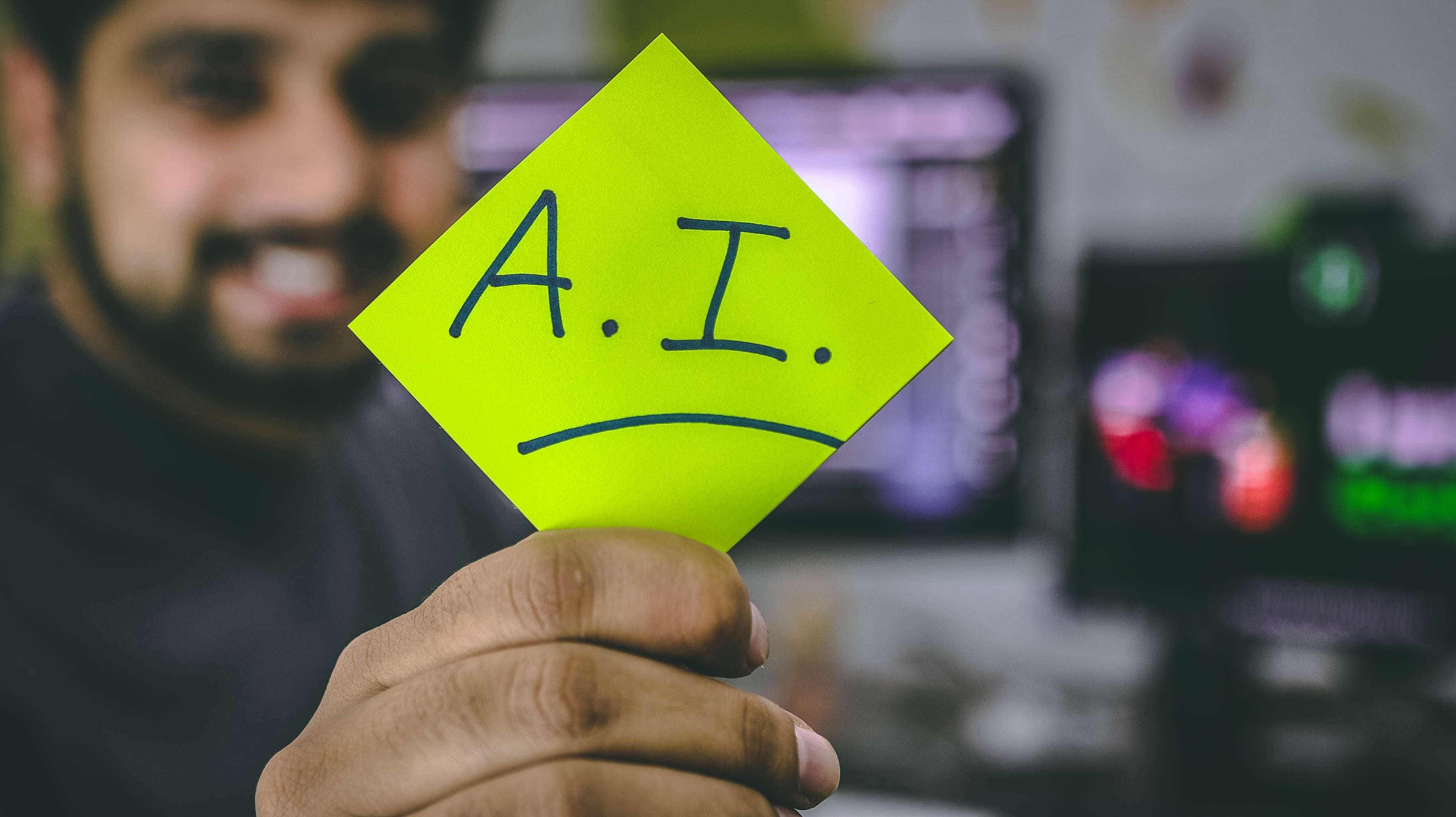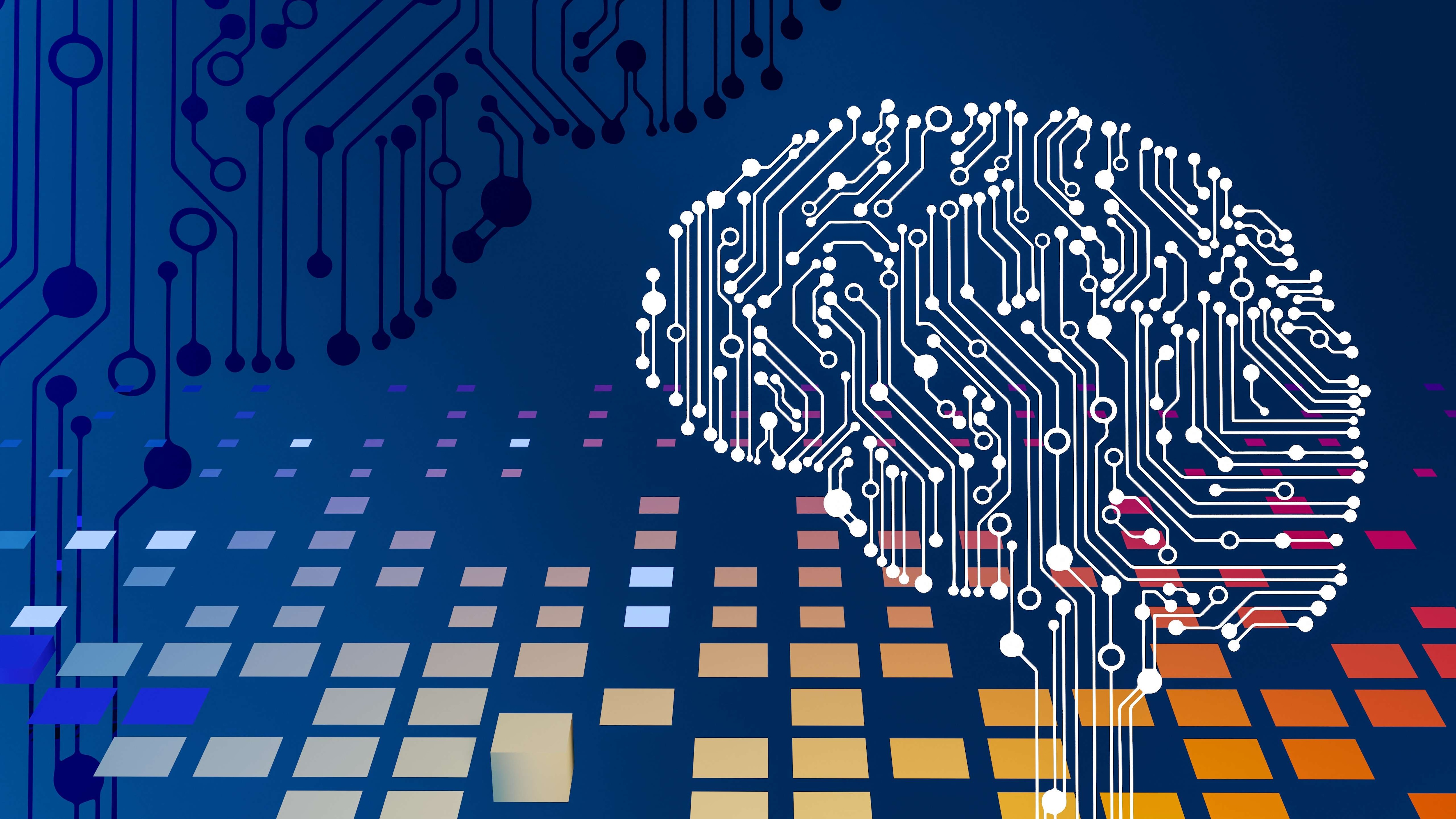Artificial intelligence can do more than generate photorealistic images and written content. It's a powerful tool that has crept into many fields—from medicine to finance, ecommerce, manufacturing, and, unsurprisingly, cybersecurity.
At first glance, AI cybersecurity seems like the perfect solution. After all, AI tools are known for their speed, efficiency, and accuracy, meaning they could potentially handle any cybersecurity threat with the utmost ease.
However, there are also a few downsides to using AI in cybersecurity. Learn all about the benefits and risks of AI-based cybersecurity and discover whether we should use AI in this field or not.
In this article
How AI Fits the Modern Cybersecurity Landscape
Artificial intelligence is no new concept—it has existed since the early ‘50s. However, AI tools have only recently become "smart" and powerful enough to find use in many applications, including cybersecurity.
For instance, many antivirus programs rely on AI to detect malware and other anomalies that could threaten your network and system. The main reason is that these programs can learn and improve over time with the help of AI and machine learning.

It might take an AI-based cybersecurity program a while to determine how to deal with a specific computer virus when it first comes into contact with it. However, the next time it does, it will know what to do to handle the issue in no time at all.
The more an AI tool in network security comes into contact with diverse malware, the more it learns about them, and the more efficiently it removes them from the system.
Benefits of AI in Cybersecurity
AI and cybersecurity often go hand in hand—for a few good reasons. Here are only some benefits of using AI for system and network security.
👀 Anomaly Detection and Behavioral Analysis on Time
With AI security, you can enjoy advanced protection from all threats—computer viruses, worms, botnets, ransomware, adware, and other malware. That's because AI monitors your systems and user and program behaviors at all times and can quickly identify anything out of the ordinary.
It immediately flags any anomaly in the network traffic and instantly secures any danger. It can catch a threat that could take hours (if not days) for a human to detect before it has enough time to do any damage.
💺 Analyzing Extensive Amounts of Data
Another benefit to combining cybersecurity and AI is that AI can process and analyze massive amounts of data quickly. An AI-based cybersecurity tool can simultaneously monitor different devices, networks, and endpoints, closely monitoring everything happening and catching threats in real time.

Even an entire team of IT professionals couldn't process such vast amounts of data with anything close to AI's speed and efficiency.
🔧 Streamlined Cybersecurity Processes and Operations
In theory, the primary role of AI in cyber security (or any other field, for that matter) is to streamline and automate all processes.
For instance, when trying to protect your home network, you'd need to do a million little things if you were to approach the task manually. You'd need to sift through emails to check for spam, scan every device you connect to your PC, check the websites you visit, assess the connected devices on your network, manually update all apps and software, and more.
AI streamlines these and other processes. It can continually monitor your network and perform time-consuming, repetitive tasks efficiently.
🤖 Proactive Responses
As mentioned, the main driver of AI's power is its ability to learn and improve over time. This feature can be valuable in the face of evolving cybersecurity threats. Therefore, an AI-based cybersecurity solution can learn to identify even novel threats early on and build up defenses against them before they can cause damage.
It can develop proactive responses, protecting your systems at all times. Instead of helping you fight off a virus infection, it can prevent it from occurring in the first place.
📎 Suggesting Options to Fix Discovered Vulnerabilities
Considering that most AI cybersecurity solutions monitor your network and all activity on it at all times, it is no surprise that they can do more than just detect threats. They can also keep an eye on any potential vulnerabilities that a cybercriminal could exploit.
AI solutions can quickly detect how malware exploits existing vulnerabilities in your system and present solutions. In many instances, they could even fix them for you.
🧰 Reduced Human Error
An often disregarded but valued perk is that AI cybersecurity solutions can significantly reduce the risk of human error. They can scan your network and systems, monitor user and program behaviors, analyze all incoming and outgoing traffic, and automate tedious processes. That way, AI solutions can up the ante on your cyber defenses and prevent you from making errors.
Risks of Using AI in Cybersecurity
Artificial intelligence is not all fun and games. Using AI in cybersecurity poses specific risks. Take a look.

Using AI to Improve Malicious Software
Artificial intelligence can improve your defenses against all cyberattacks, from malware to hacking attempts. However, just as you can use AI to strengthen your defenses, cybercriminals can use it to enhance their attacks.
They can harness the power of AI technology to modify malware and make it more resistant to your defenses. For instance, they can use AI to create more believable phishing scams or deepfake videos for ransomware attacks. They can use it to find ways to shield malware from detection and make it easier to infect and corrupt your files.
Once your files are corrupted or lost after a malicious software attack which hasn't been stopped by AI-based antivirus program, Wondershare Recoverit can do you a favor.
- Manages over 500 data loss situations, such as losing data due to malware or hacking attempts.
- The user-friendly interface allows you to recover data in just a few clicks.

An expert data recovery solution, Wondershare Recoverit is a lightweight program that has high success rates in any data loss scenario, including virus attacks and hacking. To recover your files with it, you just need to follow a few simple steps:
- Download and launch Recoverit on your PC;
- Under Hard Drives and Locations, select a location to start recovery;
- Recoverit will automatically start scanning for your lost files;

- You can pinpoint files as they appear and stop/pause the scan at any moment;
- Preview the files available for recovery;

- Click Recover and choose the save path.
Regardless of the type of malware that's affected your files, Wondershare Recoverit should have no problems retrieving them.
Manipulating AI Systems
An AI cyberattack can target and manipulate your existing AI systems to misbehave. Like any other program, your AI-based cybersecurity solution could have unknown vulnerabilities that cybercriminals can exploit.
Cybercriminals are notorious for their ingenuity and ability to find and exploit any vulnerability. After all, as AI cybersecurity defenses become more sophisticated, so do AI-based cyberattacks.
Privacy Concerns
AI cybersecurity systems process and analyze vast amounts of data—network, traffic, user, program performance, etc. While that's necessary for improving your defenses against cyberattacks, it can also leave you vulnerable.
For instance, depending on the AI cybersecurity systems you use, someone could purposefully use your data against you and sell it to third parties. In a worse scenario, your data could end up in the hands of cybercriminals.
AI Bias
Cybercriminals can feed false data to your systems to deceive them and try to exploit the underlying algorithms. That's an adversarial attack.
These attacks turn AI's most significant benefit—machine learning—against itself. AI systems rely heavily on accumulating and processing vast amounts of data to improve their processes over time. They can become biased if the data they use to learn is corrupted or false. That can trick them into misbehaving, leaving your systems vulnerable to attacks.
Losing Human Oversight
Finally, losing human oversight is the most notable risk of using AI in cybersecurity. AI systems can and do make decisions without human interference all the time. It's how they streamline and automate processes.
However, the human touch is still necessary in cybersecurity. An AI system making a security decision without human interference could potentially cause more problems than it solves.

In case your AI cybersecurity solution has a false positive identification (identifying a healthy file as a virus-infected one), you could lose important files simply because the AI believed they were malicious. Alternatively, if it has a false negative identification (identifying a virus-infected file as a non-threatening one), you would need to brace for all the consequences of a virus attack.
Since AI-based cybersecurity solutions are still in their infancy, human oversight is necessary at the moment.
Should We Use AI for Cybersecurity?
Whether we should or shouldn't use AI for cybersecurity isn't up for debate. AI is already a significant part of cybersecurity. Antivirus programs use it for malware detection and removal. Firewalls rely on it for threat protection. Cybersecurity professionals use it to reinforce network security.
Therefore, the question isn't whether we should use AI in cybersecurity—we already do. The question is whether we should utterly rely on it, and the answer is—we're not quite there yet.
AI-based cybersecurity solutions are still far from advanced enough not to need human interference. In all likelihood, we have a way to go before we can confidently rely solely on AI for all our cybersecurity needs.

Conclusion
While undoubtedly beneficial, AI cybersecurity exposes you to unique risks. On the one hand, AI cybersecurity can seamlessly perform anomaly and threat detection, go through massive amounts of data, and streamline tedious processes. It can build proactive responses and reduce the risks of human error in cybersecurity.
On the other hand, AI can also be used to enhance malicious programs and manipulate AI systems. It's vulnerable to biases, creates privacy risks, and results in the lack of the necessary human oversight in cybersecurity.
Still, considering that cyber threats quickly evolve, AI tools are becoming a necessity despite the risks they might carry.
If you suffer AI cybersecurity issues and lose your vital data, you'll always have Wondershare Recoverit to lean on to retrieve any files malware attacks delete, misplace, or corrupt.
FAQ
Do all antiviruses use AI technology?
As of yet, only some antivirus programs rely on AI technology. Some examples of AI in cybersecurity include antivirus programs like Norton, BitDefender, and McAfee.What is AI bias?
AI bias is the phenomenon of artificial intelligence systems making incorrect decisions or results due to inaccurate data they used during training. In the case of AI-based cybersecurity solutions, AI bias can result in the system giving you false positive and false negative responses in a cyberattack.What are the examples of AI in cybersecurity?
Besides antiviruses like Norton, BitDefender, and McAfee, which rely on AI for threat detection, there are countless other companies using AI for improved cybersecurity. Cybereason, for instance, offers AI-based threat monitoring, hunting, and analysis. Tessian uses AI to prevent data breaches and data loss, as well as to protect against spear phishing. Anomali uses AI to identify suspicious activity on the network, while CrowdStrike offers AI-based endpoint protection.




